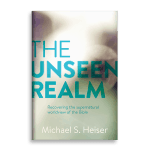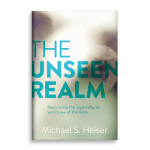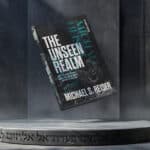
People are fascinated by the supernatural and the superhuman. Just think about the entertainment industry in recent years. Thousands of books, television shows, and movies in the past decade have been about angels, aliens, monsters, demons, ghosts, witches, magic, vampires, werewolves, and superheroes. Many of Hollywood?s blockbuster franchises feature the supernatural: the X-Men, the Avengers, the Harry Potter series, Superman, and the Twilight saga. Television shows like Fringe and, of course, Supernatural and X-Files have dedicated followings even long after filming new episodes ends. And really, haven?t these things always been popular?in tales, in books, in art?
Why?
One answer is that they?re an escape from the ordinary. They offer us a world that?s more interesting and exciting than our own. There?s something about good versus evil, magnified on a cosmic scale, that thrills us. The epic struggle by the heroes of Middle Earth (Gandalf, Frodo, and company) against the Dark Lord Sauron in The Lord of the Rings trilogy has captivated readers (and now movie-goers) for over a half-century now. The more otherworldly the villain, the more spectacular the triumph.
On another level, people are drawn to other worlds because, as the book of Ecclesiastes puts it, God has ?put eternity into [our] hearts? (Eccl. 3:11). There?s something about the human condition that longs for something beyond human experience?something divine. The apostle Paul wrote about this yearning too. He taught that it comes from just being alive in the world God has made. The creation bears witness to a creator, and therefore to a realm beyond our own (Rom. 1:18?23). In fact, Paul said this impulse was so powerful that it had to be willfully suppressed (v. 18).
And yet we don?t seem to think of the epic story of the Bible in the same way we think of our own tales of the supernatural in books, movies, and legend. There are reasons for that, and they go beyond the lack of special effects. For some, the Bible?s characters are too ordinary or grandfatherly. They don?t feel dynamic or heroic. After all, these are the same people and the same stories we?ve been hearing since Sunday school as kids. Then there?s the cultural barrier. It?s hard for us to identify with what seems like an endless parade of ancient shepherds and men wearing robes, like so many actors in your church?s nativity play.
But I think an even bigger factor in why science fiction or supernatural fantasy captures our imagination more easily is how we?ve been taught to think about the unseen world of the Bible. What I?ve heard in church over the years doesn?t just miss the boat?it makes the supernatural boring. And even worse, the church?s teaching emasculates the unseen, supernatural world, rendering it powerless.
A lot of what Christians imagine to be true about the unseen world isn?t. Angels don?t have wings. (Cherubim don?t count because they are never called angels and are creaturely. Angels are always in human form.) Demons don?t sport horns and a tail, and they aren?t here to make us sin (we do that just fine on our own). And while the Bible describes demonic possession in rightfully awful ways, intelligent evil has more sinister things to do than make sock puppets out of people. And on top of that, angels and demons are minor players. Church never seems to get to the big boys and their agenda.
* * *
Adapted from Supernatural by Michael S. Heiser, available November 10.
Pre-order your copy today at ReadSupernatural.com.






